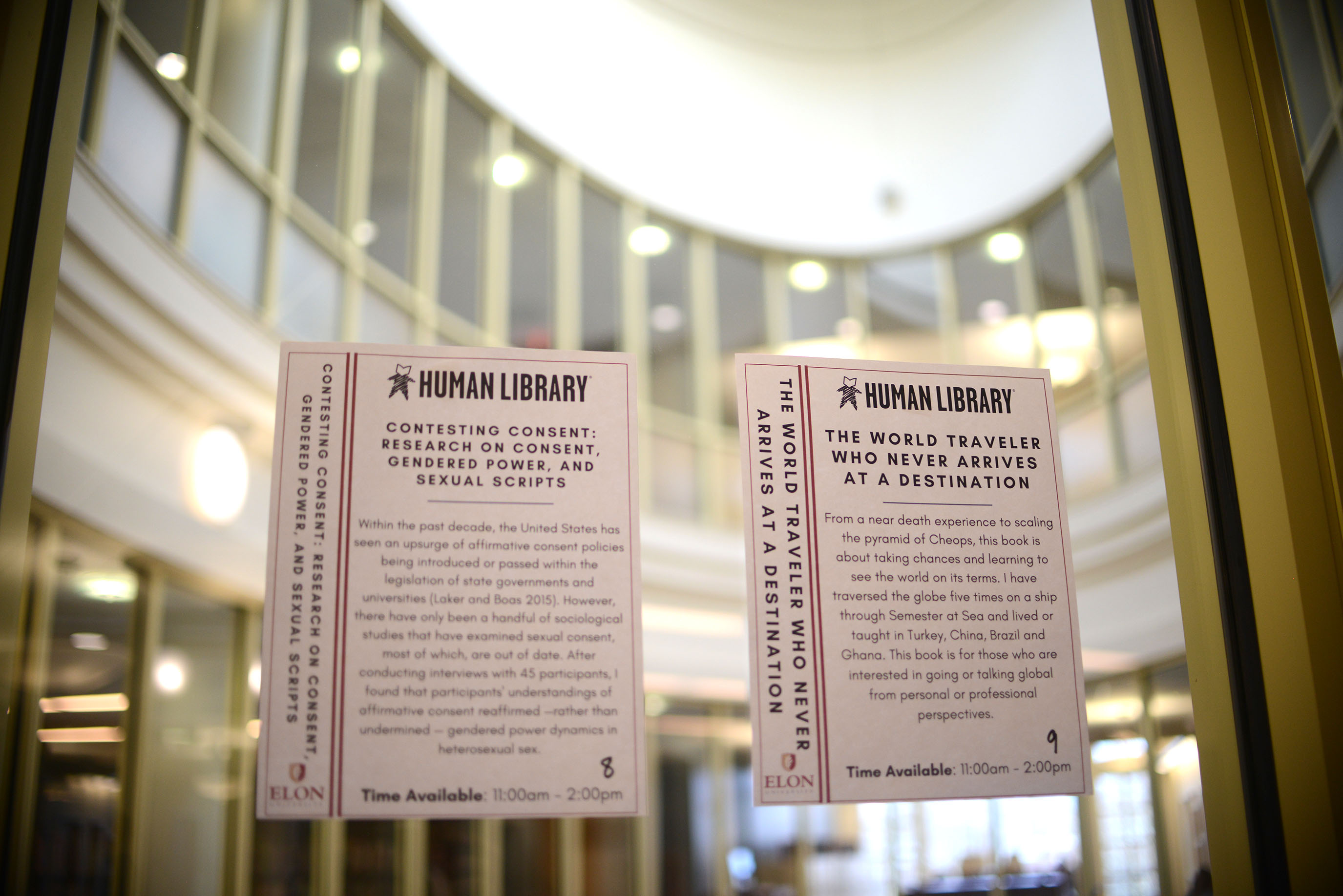The project, now in its fifth year at Elon, offers the opportunity for students, faculty and staff to share about their life stories, the differences and their similarities.
For a fifth year, Elon’s Belk Library on Thursday, Jan. 16, participated in the Human Library Project, expanding its collection beyond the bound volumes that line its shelves by incorporating living, breathing “books” ready to tell their own stories.
The concept of the Human Library Project was developed in 2000 by two brothers, Ronni Abergel and Dany Abergel, and their colleagues Asma Mouna and Christoffer Erichsen in Copenhagen. Their main idea? To let humans become books for a day and give them the opportunity to share their stories to “readers” who “check them out.”

At Elon, this type of connection has particular significance as students, faculty, and staff are able to open up and share their individuality without barriers. Participants have the opportunity to make connections and be able to openly share pieces of themselves. For the Human Library Project, Belk Library collaborated with the Koenigsberger Learning Center, Residence Life, and the Center for Equity and Inclusive Excellence to make these opportunities for connection possible.
“The real focus is to create conversations around difference,” Assistant Librarian and event coordinator Patrick Rudd said. “The organization defines it as different walks of life, identities across race, religion, family background, sexual orientation, gender, profession, hobbies, class, disability, skill set, and all of the aspects of what it means to be human.”
Some books choose to talk about their experiences as an immigrant, a first-generation college student, or what it was like to grow up in a military family. Rudd shared more examples of powerful stories often told at the event, some of which are about sexual assault or gender issues that have impacted people and their human experience.
This year’s Human Library was the third time Assistant Director of Teaching and Learning Technologies Brent Smith volunteered as a book. Smith said that each time he has participated he has told a different story. On Thursday, Smith shared what it has been like to be part of the baby boomer generation in his book titled “Beer-brewing baby boomer” in hopes of putting a human face to the newly popularized expression, “OK, Boomer.”

“I think it’s the synergies that are probably the most powerful part of the Human Library experience,” Smith said. “You go into it ostensibly talking about one thing and suddenly you are in a whole other place.”
Some books even choose to leave their professional titles at the door when they participate in The Human Library. Danielle Golinski, assistant director of career services for the Love School of Business, is one of those people. Golinski said she enjoys showing Elon students that the faculty and staff they interact with on campus each day have lives and passions outside of work.
“The best thing about this experience is breaking down those walls,” Golinski said. “Typically, when a student wants to check me out as a book, I don’t even introduce my title or anything like that because I am a human being and I have some unique stories that I want to share with the students.”
Not only was the experience of The Human Library impactful for the books sharing, but the connection embraced by readers also felt powerful, especially for Eduardo Sanchez ’23 who said that “everyone has something that connects them to people” and that could see himself in different aspects of each book he talked to.
“I think people can gain a lot from knowing that we have a lot in common,” Sanchez said. “More than we think we do, even if we come from different walks of life and we have different backstories.”



